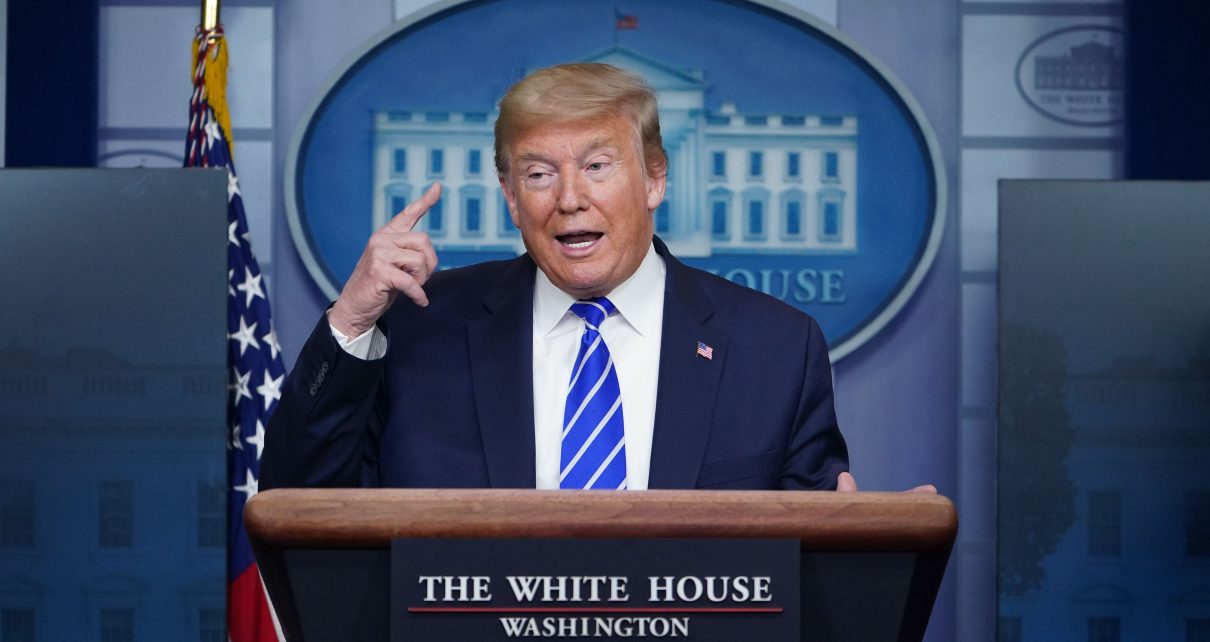People with COVID-19 who arrive at the Salvador Zubirán National Institute of Medical Sciences and Nutrition in Mexico City to search for treatment can choose from a menu of clinical trials, carefully presented by a worker trained to offer an unbiased portrait of the potential risks and benefits.
But neurologist Sergio Iván Valdés-Ferrer already knows which trial most will choose—and it’s not his. Instead, many people opt for one involving hydroxychloroquine, a malaria drug that has been touted by US President Donald Trump and other influential figures as an effective coronavirus treatment. High demand for the drug in Mexico has quickly depleted the country’s supply. Its use is now limited to hospitals, and patients are eager to ensure that they receive it.
“There’s a tremendous bias,” says Valdés-Ferrer, who is studying the effects of a dementia drug on COVID-19. “Studies of any other drug that are enrolling all ages and degrees of severity are in big trouble.”
Hydroxychloroquine and its close chemical cousin chloroquine have attracted disproportionate attention in the coronavirus pandemic, spurred by preliminary studies and endorsement from political leaders such as Trump and French President Emmanuel Macron. So far, there is very little data backing the idea that hydroxychloroquine works against coronavirus infection, yet the fervour surrounding it has created drug shortages and affected enrolment in clinical trials for other potential treatments.
“When you have desperate people and, frankly, desperate doctors, you want to believe that you have something that works,” says Daniel Kaul, an infectious-disease specialist at the University of Michigan Medical School in Ann Arbor. “But at the end of the day that doesn’t help anybody if it isn’t effective, and if it precludes people from participating in other studies.”
Early evidence
The US Food and Drug Administration (FDA) has approved chloroquine and hydroxychloroquine to treat malaria and, because of their anti-inflammatory properties, some autoimmune diseases such as rheumatoid arthritis and lupus. In February, researchers showed that chloroquine could reduce coronavirus infection of human cells grown in the laboratory1. A few days later came a report of clinical trials on patients with COVID-19 in ten hospitals in China. Taken together, these trials suggested that chloroquine treatment might shorten the duration of the disease2.
Since then, a handful of small studies have been reported, but none have shown definitively whether or not chloroquine or hydroxychloroquine can benefit COVID-19 patients. Some research has even suggested that the treatment could cause harm in people with COVID-193. “Thus far, all of these studies published have been very small and not robust,” says Richard Whitlock, a surgeon and intensive care physician at the Population Health Research Institute in Hamilton, Canada. “Small trials can swing on both sides—from ‘yes it looks great’ to ‘no it’s harmful’—and that’s what we’re seeing.”
But the findings were sufficient for some of the world’s most high-profile politicians, keen to offer worried voters and suffering economies a glimmer of hope. Trump claimed that he considered taking chloroquine as a precautionary measure. Hospitals in Iran, New York, Spain and China turned to hydroxychloroquine and chloroquine as a standard therapy for patients with COVID-19, despite guidance from the World Health Organization and several medical associations that the drugs should not be used against COVID-19 except in clinical trials.
In treatment guidelines released on 21 April, the US National Institutes of Health noted that there is insufficient data to recommend either for or against the use of chloroquine and hydroxychloroquine in people with COVID-19. “Doctors are just trying it because they want to offer their patients something,” says Lauren Sauer, an emergency-medicine researcher at Johns Hopkins University in Baltimore, Maryland. “Anecdotes have turned into evidence, it seems.”
Demand also soared outside hospitals. On 28 March, the FDA issued an emergency permit to use of national stockpiles of chloroquine and hydroxychloroquine to treat patients with COVID-19—a move that many people took as a sign of the agency’s faith in the drugs’ efficacy. The resulting race to take, or even to hoard, chloroquine led to global shortages, and people who take it to treat autoimmune diseases struggled to access supplies. Meanwhile, there were reports of illness and deaths linked to chloroquine overdoses in the United States and Nigeria.
Endangered trials
Speed is crucial in the hunt for COVID-19 treatments, and a slow-down in clinical trials could cost lives. Some people don’t want to participate in clinical trials that would require them to give up chloroquine treatments. This has made it difficult to enrol people into his trial of HIV drugs as potential COVID-19 treatments, says infectious-disease specialist Sung-Han Kim at the University of Ulsan College of Medicine in Seoul .
Kim’s story isn’t unique. Psychiatrist Eric Lenze of Washington University in St. Louis, Missouri, recently launched a trial of an antidepressant that he hopes could lessen the immune response linked to some severe COVID-19 cases. The trial has so far enrolled ten participants; three others declined to take part because they were already planning to take hydroxychloroquine. And Sauer says that she and her colleagues have encountered similar resistance while enrolling participants into a trial of the antiviral drug remdesivir.
As a result, some researchers are making compromises in study design. In Iran, pathologist Alireza Ghaffarieh gave up his plans to exclude chloroquine treatment from his trial of an iron-chelating medicine in people with COVID-19 at the Kermanshah University of Medical Sciences. “The patients have already started with two or three drugs,” he says. “They are never happy to drop this medication.” Instead, he accepts participants who might be taking other medications, and hopes that this will not complicate interpretation of his results.
Delays in clinical-trial enrolment can endanger a trial, particularly during a pandemic, says Prashant Malhotra, an infectious-disease specialist at North Shore University Hospital in Manhasset, New York. In some outbreaks, it’s best if trials can be completed early, he says, because as health-care systems become overwhelmed, the quality of care could decline. “You’re running out of basic supplies and may not be able to provide the same level of care as what was given earlier,” he says. “The results of clinical trials that were done early on may not be comparable to those done later in pandemic settings.”
Data from clinical trials can also be skewed by excluding participants who refuse to give up chloroquine treatment. Chloroquine can cause heart arrhythmias, for example, and so may not be given to some people who have pre-existing heart problems. That means that a trial that excludes chloroquine-takers could end up enrolling a disproportionately large number of participants with heart conditions, says Malhotra.
But allowing participants to take chloroquine could muddle efforts to interpret data. Chloroquine’s effects, especially its effect on the immune system, could take days to fade, says Malhotra. This could make it difficult for trial investigators to distinguish the effect of the treatment they are testing from the effect of the chloroquine.
Researchers might have settled some of these questions weeks ago if there had been a rapid, international effort to develop a rigorous chloroquine clinical trial, says Ole Søgaard, an infectious-disease physician at Aarhus University Hospital in Denmark. Now, there are more than 100 clinical trials that aim to test chloroquine or hydroxychloroquine against COVID-19.
It’s a worthwhile effort, he says, despite the lack of evidence supporting the drugs in that setting. “Being able to cross something like hydroxychloroquine off the list and move on to other things would be a major achievement,” he says. “Then you could shut down a lot of trials and replace them with something you believe in.”
This article is reproduced with permission and was first published on April 24 2020.
Read more about the coronavirus outbreak here.



